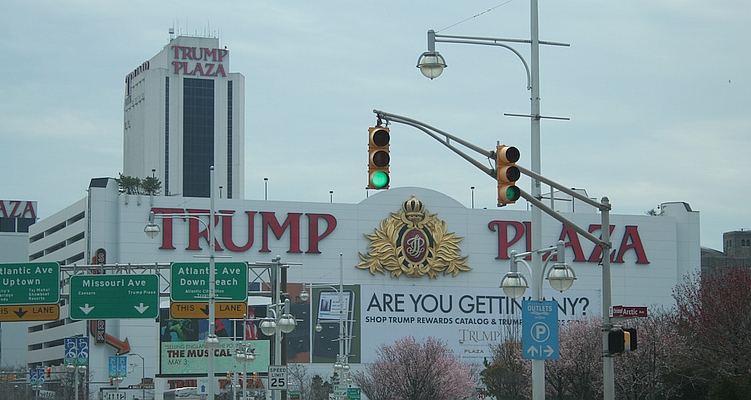In a move said to avoid payments in lieu of taxes under Atlantic City’s new PILOT program, which has yet to be signed into law, the shuttered Trump Plaza was approved to create a deed restriction that will keep anyone from operating the property as a casino without paying an undisclosed “release fee” to the owners.
Trump Entertainment Resorts sought the approval from Judge Kevin Gross in Delaware where the company’s bankruptcy proceedings are taking place. The casino closed on September 16, 2014 – the last of four casinos that closed in Atlantic City last year.
The property could still be used for non-gambling purposes without lifting the deed restriction. Some analysts have suggested the property could better serve the economy of the city by being demolished to make room for more shopping or other non-gambling activities.
If Governor Christie signs the 15 year PILOT program into law, the property could have faced higher costs as the owners would be barred from filing property tax appeals. The bill has passed both houses of congress and would apply to casinos that operated in 2014 and have no deed restrictions. Trump Plaza was open about eight and a half months of the year.
The Showboat Casino Hotel closed in August 2014. It also has a deed restriction, but that caveat states that the property may only be used as a 1st class casino. Showboat avoided the PILOT program because of that restriction, negotiated in 1988 between Caesars and Trump Entertainment. Reports indicate that Trump Plaza was not factored into the program last December by surviving casinos.
According to reports, a Trump Entertainment court filing notes that Investor Carl Icahn was not opposed to the restriction. Icahn is in the process of acquiring Trump Entertainment in bankruptcy court. As Trump’s senior lender, Icahn claims power over other major decisions, such as the sale of the casino. He reportedly blocked an early 2013 Trump Resorts deal with Meruelo Group who were seeking to buy the property for about 10% of what his mortgage on Trump Plaza and Trump Taj Mahal was worth at the time. That would have been the lowest sale price of any casino in the city’s history.
“It’s as black and white as it can be: They can’t sell that casino without our consent. It’s not going for anywhere close to $20 million,” Icahn said.
Trump Plaza was the worst performing casino in Atlantic City at that time and had been “on the market” for some time before finally closing nearly a year ago.
The remaining eight casinos in the city are enjoying a rebirth of revenues in 2015.



